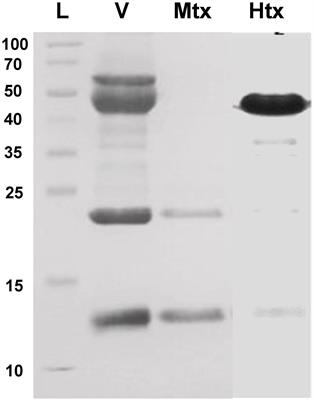EDITORIAL
Published on 22 May 2020
Editorial: Novel Immunotherapies Against Envenomings by Snakes and Other Venomous Animals
doi 10.3389/fimmu.2020.01004
- 2,957 views
- 9 citations
14k
Total downloads
103k
Total views and downloads
EDITORIAL
Published on 22 May 2020
ORIGINAL RESEARCH
Published on 07 May 2020

ORIGINAL RESEARCH
Published on 21 Oct 2019

REVIEW
Published on 06 Sep 2019

REVIEW
Published on 10 Jul 2019
